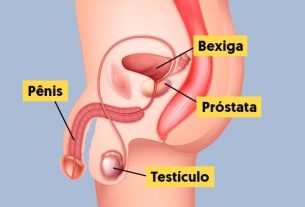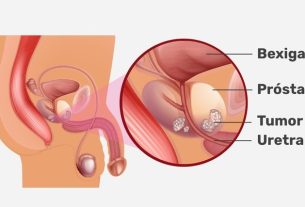Some tips for increasing testosterone include eating foods rich in zinc, vitamin A and vitamin D, practicing physical activity and getting a good night’s sleep, as these help to increase testosterone levels naturally in the body.
Testosterone is a hormone present in men and women, being important for libido, fertility, increased muscle mass and male characteristics, such as hair growth and sperm production. Understand more about testosterone.
However, when lifestyle changes are not capable of increasing testosterone, the urologist, gynecologist or endocrinologist may recommend hormone replacement, through supplements such as Sustanon, Somatodrol, Provacyl and Androgel.

6 tips to increase testosterone
Some of the top tips to help increase testosterone are:
1. Eat foods rich in zinc, vitamins A and vitamin D
Foods rich in zinc, vitamin A and vitamin D help increase testosterone production in men and women, improving fertility and libido.
Thus, the foods that help to naturally increase testosterone are:
- Foods rich in zinc, such as oysters, seafood, beef liver, pumpkin and sesame seeds;
- Foods rich in vitamin D, such as salmon, butter, sardines and eggs;
- Foods rich in vitamin A, such as mango, spinach, tomato, yogurt and cheese.
In addition, it is also recommended to eat foods such as flaxseed, avocado and salmon, as they are rich in omega 3, a healthy fat that acts in the production of testosterone. Check out other foods that increase testosterone.
2. Practice physical exercise
Practicing between 150 and 200 minutes of physical exercise per week increases testosterone levels. The exercises that most favor the increase in testosterone are resistance and high impact exercises, such as weight training, crossfit and functional exercises. Discover other exercises that increase testosterone.
However, it is important to remember that excessive physical activity is not recommended, as it can cause stress in the body, increasing cortisol levels, which is a hormone that causes testosterone levels to drop.
3. Sleep 7 to 9 hours a night
Sleeping 7 to 9 hours a night is essential for increasing testosterone production, as sleep controls cortisol levels, which is the hormone that inhibits testosterone production. See how many hours you sleep per day.
4. Maintain adequate weight
To increase testosterone, it is recommended to maintain adequate body weight. This is because excess body fat increases levels of aromatase, an enzyme that decreases the production and levels of testosterone in the body.
However, it is not recommended to have low body weight, because fat cells are essential for the production of hormones such as testosterone.
To find out your ideal weight, enter your data into our calculator below:
5. Reduce stress
To increase testosterone, it is recommended to reduce stress, because during stress the body increases the release of cortisol, which is the hormone that decreases testosterone levels in the body.
Some tips for reducing stress include doing activities that promote well-being and pleasure, such as reading, doing yoga, dancing, going out with friends or undergoing psychotherapy. Check out other tips to reduce stress.
6. Use supplements
Using hormone replacement supplements, such as Sustanon, Somatodrol, Provacyl and Androgel, may be indicated to help increase testosterone.
However, these supplements should only be used under medical advice and when the levels of this hormone are very low. Find out how testosterone replacement is done.
Symptoms of Low Testosterone
Some symptoms that may indicate low testosterone levels are:
- Decreased libido;
- Frequent tiredness;
- Depression;
- Irritability;
- Difficulty gaining muscle mass;
- Reduction of body and beard hair;
- Difficulty falling asleep and a lot of restlessness during the night.
In the presence of symptoms that may indicate low testosterone, it is recommended to consult an endocrinologist, urologist, in the case of men, or gynecologist, in the case of women.
Bibliography
- BENDER, J, Cláudio Roberto. The influences of nutrition on the regulation and maintenance of healthy testosterone levels: a literature review. Graduation completion thesis, 2017. Centro Universitário de Brasília: Faculty of Nutrition and Health Sciences.
- YUAN, Jialing et al. Efficacy of omega-3 polyunsaturated fatty acids on hormones, oxidative stress, and inflammatory parameters among polycystic ovary syndrome: a systematic review and meta-analysis. Annals of Palliative Medicine. vol.10. 8.ed; 8991-9001, 2021
- RIACHY, Ruba et al. Various Factors May Modulate the Effect of Exercise on Testosterone Levels in Men. Journal of Functional Morphology and Kinesiology. Vol.5. 4.ed; 1-20, 2020
- NORTHWESTERN MEDICINE. Quick Dose: Can Physical Activity Affect Testosterone?. Disponível em: <https://www.nm.org/healthbeat/healthy-tips/fitness/quick-dose-can-physicial-activity-affect-testosterone#:~:text=Research%20shows%20that%20testosterone%20levels,and%20lower%20in%20the%20afternoon>. Acesso em 15 mar 2023
- U.S DEPARTMENT OF VETERANS AFFAIRS- OFFICE OF PATIENT CENTERED CARE & CULTURAL TRANSFORMATION. Improving low testosterone naturally. 2020. Available at: <https://www.va.gov/WHOLEHEALTHLIBRARY/docs/Improving-Low-Testosterone-Naturally.pdf>. Accessed on March 15, 2023
- S D’Andrea et al. Relationship of Vitamin D status with testosterone levels: a systematic review and meta-analysis. Endocrine. Vol.72. 1.ed; 49-61, 2021
- NIA, M, Leila Mazaheri et al. Effect of Zinc on Testosterone Levels and Sexual Function of Postmenopausal Women: A Randomized Controlled Trial. Journal of Sex & Marital Therapy. Vol.47. 8.ed; 804-813, 2021

Sign up for our newsletter and stay up to date with exclusive news
that can transform your routine!
Warning: Undefined array key "title" in /home/storelat/public_html/wp-content/plugins/link-whisper-premium/templates/frontend/related-posts.php on line 12
Warning: Undefined array key "title_tag" in /home/storelat/public_html/wp-content/plugins/link-whisper-premium/templates/frontend/related-posts.php on line 13



